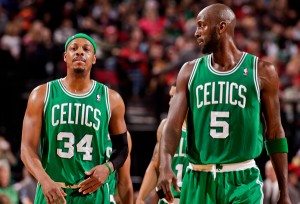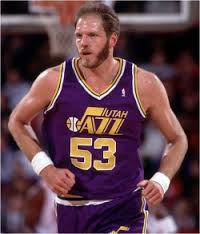Last week, stars Paul Pierce and Kevin Garnett played a road game. But not just any road game. 
It was perhaps the most significant road game of their careers.
The future Hall of Famers returned for the first time to basketball-bonkers Boston, the city where they won hearts and championships. The former Celtics were given a warm welcome that included video tributes and had an emotional evening.
In this era of free agency, many players have a similar experience. They move from a place where they have been a fixture and get to return to their previous home for the first time.
It starts with the hotel stay, different from when you had a home just a short drive away. They experience that awkward walk to the visiting locker room. They sit on the opposing bench, dressed in the enemy team’s uniform.
Then the payoff – the introduction of the starting lineups.
Some, like Pierce and Garnett, are greeted with warm receptions ranging from loud applause to standing ovations. Others, like LeBron James, get the full treatment from the boo birds. And for many, the message they receive is finding out out just how replaceable they are.
I have had the pleasure of the return home game three times in my career. Over 18 years, there were three teams that I played for long enough to make a lasting impact. In those three situations, I have experienced all three types of receptions.
The first was my virgin team, the Utah Jazz. I arrived as a rookie who was booed at the draft by fans who wanted Herb Williams, taken right after me by Indiana. I was an excited kid who just got drafted into the NBA realizing a dream that I worked hard for.
When I did my first live interview back to Salt Lake City with team radio host Hot Rod Hundley, I heard nothing but boos as I was telling the fans how excited I was to be there. Things went from bad to worse when I held out of training camp in a contract dispute.
When I finally showed up as an obnoxious Jewish kid from New York, things got really interesting. In my nearly two seasons there, the team was not very good, although we worked hard every night and put on a good show. Even though I was developing nicely and playing well, I was the scapegoat for why we weren’t winning.
Near the trade deadline of my second season, I was dealt to the Denver Nuggets for Rich Kelley and enough  cash to prevent the financially struggling Jazz from going under.
cash to prevent the financially struggling Jazz from going under.
As division rivals, we played each other often, and it wasn’t long before I found myself back in Salt Lake City. It turns out that the trade was a winner all around. I was a hit in Denver. Kelley was as unpopular in Denver as I was in Salt Lake but was loved by the Jazz fans – probably because he wasn’t me. Mark Eaton got a chance as my replacement and was a fixture for years to come. And the team lived to get John Stockton and Karl Malone in the next two drafts.
Upon returning, my reception was so bad that some of my teammates asked me who I killed when I was here. The fans at the Salt Palace booed loud and long.